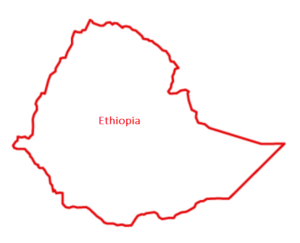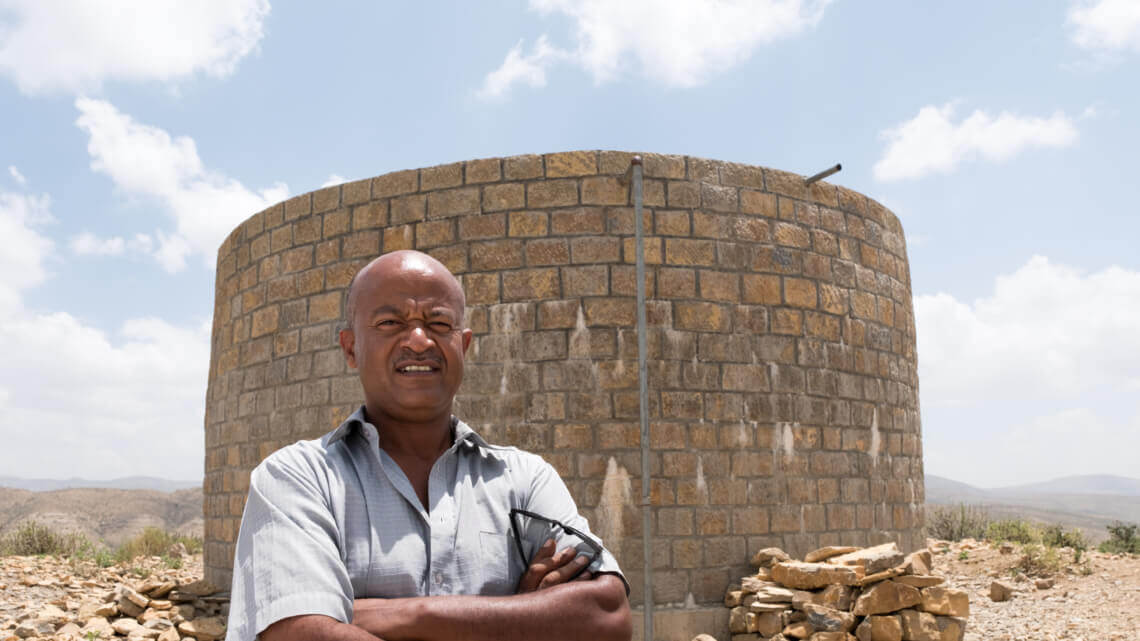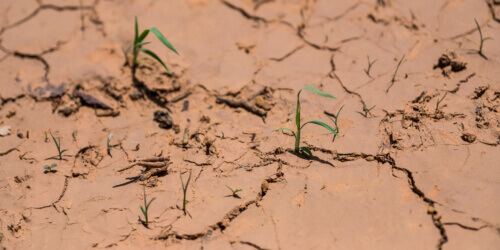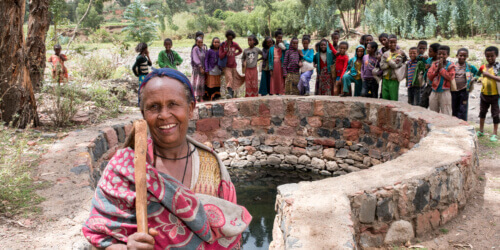
Context: A project involving 7 countries
As part of this five-year project funded by the Belgian Directorate-General of Development Cooperation and Humanitarian Aid (DGD), Caritas International is striving for solidarity, dignity, and resilience. The project is spread across 7 countries, including Ethiopia. Its key themes are nutritional and food security, as well as migration and development. The project was developed both on the basis of the main concerns of the populations of the countries in question, and by identifying possible areas of collaboration with other partners.
Objective: Food and nutritional security
We want to reinforce the food and nutritional security of vulnerable families and communities against the consequences of climate change, as well as reduce forced migration[1] through the promotion of climate-centered agriculture and diverse means of subsistence.
Causes de l'insécurité alimentaire
Short-term and chronic food insecurity and increased poverty levels are major concerns in both of the intervention areas. 33% of residents of the Enderta district and 75% of those living in the Irob district are unable to meet their dietary needs.
The causes of food insecurity are diverse and interconnected. Firstly, the Irob and Enderta districts are consumed by droughts (with annual average precipitation between 300 and 600 liters of water per square meter). Due to climate change, precipitation has become increasingly irregular (longer droughts, and rainy seasons that begin later and end earlier). Community members whose crops depend on rainfall are increasingly vulnerable.
Population growth (2.7% a year in Tigray) and the lack of fertile soil mean that more people are without land, especially young people (39% in Irob an 11% in Enderta). There is little opportunity for young people and women outside of agriculture.
Both in Irob and Enderta, the availability of feed for livestock and drinking water is threatened by deforestation, declining groundwater levels, erosion, and soil exhaustion. All this limits agricultural yield and livestock.
Actions:
More food security for farmers will be achieved through:
- The construction/expansion/repair of rainwater collection and delivery infrastructure (dams, canals, supply sites).
- The promotion of fortified plants and fruits, as well as the promotion of irrigation techniques to reduce dependence on rainwater.
- The promotion of forage plants and trees.
- The promotion of new cactus harvesting techniques in order to be able to use them for feed during the off-season.
- The construction of water troughs for animals in existing water supply sites.
- The creation of savings and loan groups – especially for women – and the distribution of enhanced chickens and sheep for livestock.
- The promotion of beekeeping and honey production with improved techniques as a complementary source of income.
- The restoration of natural resources in order to combat erosion, reestablish groundwater levels and take action against soil exhaustion.
Jobs for families without land and unemployed youth will be created through:
- Skills building in order to increase one’s chances of finding work.
- Instruction in entrepreneurship.
- Improved access to credit.
Caritas will undertake the following actions to improve healthy eating:
- The promotion of fruits and vegetables in home gardens to ensure meals are diverse and contain nutritious value.
- The construction of new water supply sites, water ducts, and rainwater collection cisterns.
Several training courses will be organized to make communities more resilient in times of crisis. Caritas also emphasizes work in co-ops and committees as well as dialogue not just within communities, but with outside groups.
Target audience
This project is geared towards small-scale farmers on the one hand, and families without land and unemployed youth on the other. These groups make up 3,374 households and 7 communities (41,084 people) confronted with the negative impacts of climate change and prone to migration due to a lack of opportunity.
With the support of the Belgian Directorate-General for Development Cooperation and Humanitarian Aid – DGD













